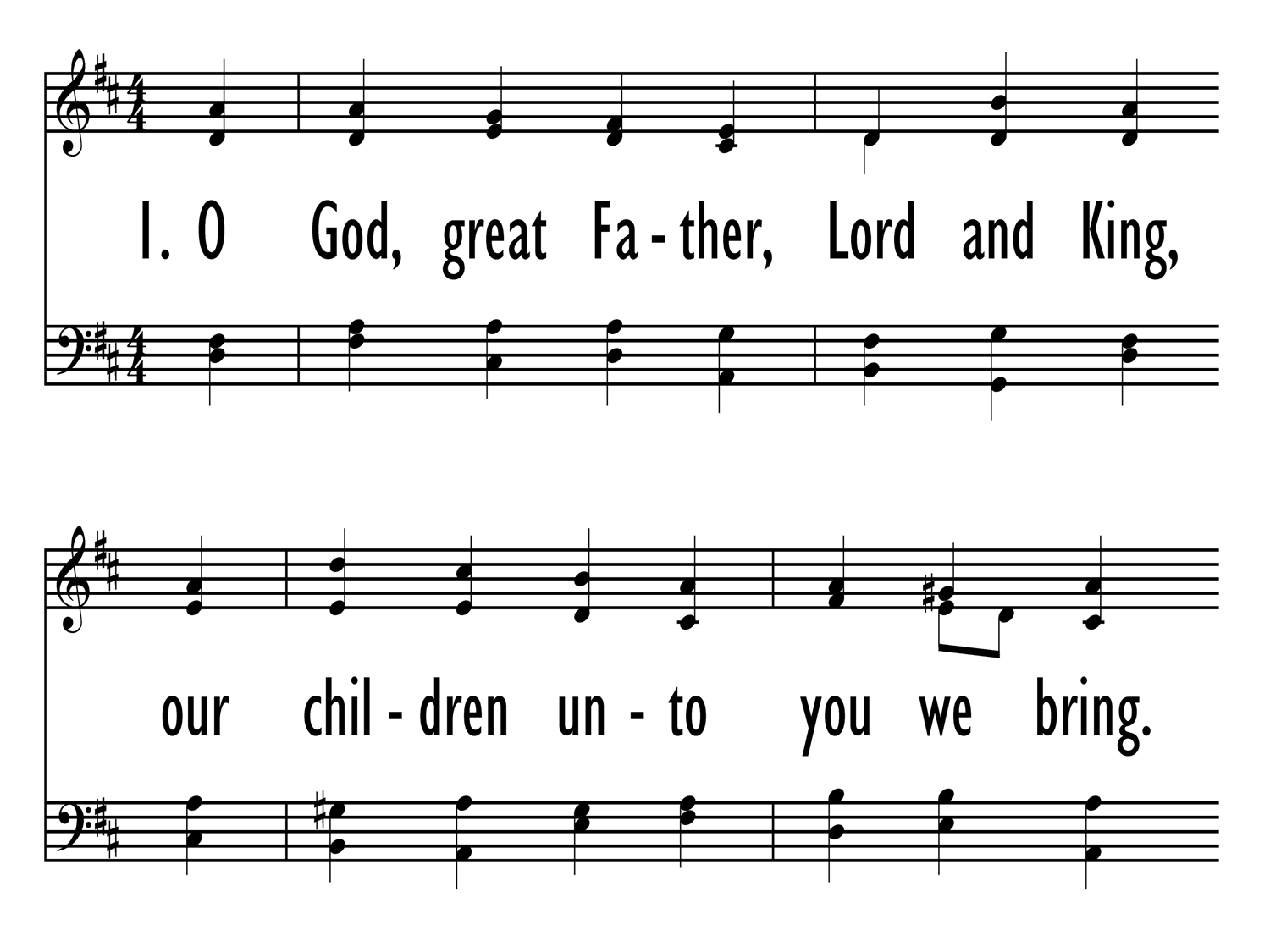- |
User Links
MELCOMBE (Webbe)

MELCOMBE (Webbe)
Composer: Samuel Webbe (1782)Published in 425 hymnals
Printable scores: PDF, MusicXML
Audio files: MIDI, Recording
Composer: Samuel Webbe
 Samuel Webbe (the elder; b. London, England, 1740; d. London, 1816) Webbe's father died soon after Samuel was born without providing financial security for the family. Thus Webbe received little education and was apprenticed to a cabinetmaker at the age of eleven. However, he was determined to study and taught himself Latin, Greek, Hebrew, French, German, and Italian while working on his apprenticeship. He also worked as a music copyist and received musical training from Carl Barbant, organist at the Bavarian Embassy. Restricted at this time in England, Roman Catholic worship was freely permitted in the foreign embassies. Because Webbe was Roman Catholic, he became organist at the Portuguese Chapel and later at the Sardinian and Spanish… Go to person page >
Samuel Webbe (the elder; b. London, England, 1740; d. London, 1816) Webbe's father died soon after Samuel was born without providing financial security for the family. Thus Webbe received little education and was apprenticed to a cabinetmaker at the age of eleven. However, he was determined to study and taught himself Latin, Greek, Hebrew, French, German, and Italian while working on his apprenticeship. He also worked as a music copyist and received musical training from Carl Barbant, organist at the Bavarian Embassy. Restricted at this time in England, Roman Catholic worship was freely permitted in the foreign embassies. Because Webbe was Roman Catholic, he became organist at the Portuguese Chapel and later at the Sardinian and Spanish… Go to person page >Tune Information
| Title: | MELCOMBE (Webbe) |
| Composer: | Samuel Webbe (1782) |
| Meter: | 8.8.8.8 |
| Incipit: | 55432 16551 76554 |
| Key: | E♭ Major |
| Copyright: | Public Domain |
Alternative Tunes
Notes
Also known as:
- ST. PHILIPS
- BENEDICTION
- GRANTON
- NAZARETH
MELCOMBE was first used as an anonymous chant tune (with figured bass) in the Roman Catholic Mass and was published in 1782 in An Essay on the Church Plain Chant. It was first ascribed to Samuel Webbe (the elder; b. London, England, 1740; d. London, 1816) and named MELCOMBE in Ralph Harrison's Sacred Harmony (1791), the first of many Protestant hymnals to contain this popular Roman Catholic tune. The tune title refers to Melcombe Regis, the northern part of Weymouth in Dorsetshire, England, made famous through frequent visits by King George III (1738-1820).
Webbe's father died soon after Samuel was born without providing financial security for the family. Thus Webbe received little education and was apprenticed to a cabinet maker at the age of eleven. However, he was determined to study and taught himself Latin, Greek, Hebrew, French, German, and Italian while working on his apprenticeship. He also worked as a music copyist and received musical training from Carl Barbant, organist at the Bavarian Embassy. Restricted at this time in England, Roman Catholic worship was freely permitted in the foreign embassies. Because Webbe was Roman Catholic, he became organist at the Portuguese Chapel and later at the Sardinian and Spanish chapels in their respective embassies. He wrote much music for Roman Catholic services and composed hymn tunes, motets, and madrigals.
Webbe is considered an outstanding composer of glees and catches, as is evident in his nine published collections of these smaller choral works. He also published A Collection of Sacred Music (c. 1790), A Collection of Masses for Small Choirs (1792), and, with his son Samuel (the younger), Antiphons in Six Books of Anthems (1818).
MELCOMBE has a steady rhythmic structure and a lot of stepwise intervals. The original setting had one dotted rhythm in the third phrase, which is deleted in many hymnals, including the Psalter Hymnal. The harmony borrows from Webbe's original bass line and from William H. Monk's (PHH 332) harmonization of MELCOMBE for Hymns Ancient and Modern (1861). Sing this tune in two long lines, with a small pause at the end of the first to allow a breath before singing the second.
--Psalter Hymnal Handbook, 1988
Timeline
Arrangements
Harmonizations, Introductions, Descants, Intonations
|
Organ Solo
|
Piano Solo
|
Media
The Cyber Hymnal #4
Text: Abide Not in the Realm of DreamsThe Cyber Hymnal #116
Text: All Things Are ThineThe Cyber Hymnal #200
Text: As Near the Wished for Port We DrawThe Cyber Hymnal #2206
Text: How Blest the Man Who Fears the LordThe Cyber Hymnal #4328
Text: The Morning Walks upon the EarthThe Cyber Hymnal #4517
Text: New Every Morning Is the LoveThe Cyber Hymnal #4811
Text: O for That Flame of Living FireThe Cyber Hymnal #5074
Text: O Let My Supplicating CryThe Cyber Hymnal #5089
Text: O Lord, How Joyful 'Tis to SeeThe Cyber Hymnal #5127
Text: O Lord of Hosts, Whose Glory FillsThe Cyber Hymnal #5290
Text: O Risen ChristThe Cyber Hymnal #5527
Text: O Who Like Thee, So Calm, So BrightThe Cyber Hymnal #7291
Text: What Shall the Dying Sinner Do?The Cyber Hymnal #7503
Text: When Israel, of the Lord BelovedThe Hymnal, Revised and Enlarged, as adopted by the General Convention of the Protestant Episcopal Church in the United States of America in the year of our Lord 1892 #1
Text: New every morning is the love- Melcombe (XML)
Psalter Hymnal (Gray) #112
Text: How Blest Are Those Who Fear the LORDPsalter Hymnal (Gray) #274
Text: O God, Great Father, Lord and King- MIDI file from Christian Classics Ethereal Hymnary #590
- MIDI file from Christian Classics Ethereal Hymnary #590
- MIDI file from The Cyber Hymnal #4
- MIDI file from The Cyber Hymnal #116
- MIDI file from The Cyber Hymnal #200
- MIDI file from The Cyber Hymnal #2206
- MIDI file from The Cyber Hymnal #4328
- MIDI file from The Cyber Hymnal #4517
- MIDI file from The Cyber Hymnal #4811
- MIDI file from The Cyber Hymnal #5074
- MIDI file from The Cyber Hymnal #5089
- MIDI file from The Cyber Hymnal #5127
- MIDI file from The Cyber Hymnal #5290
- MIDI file from The Cyber Hymnal #5527
- MIDI file from The Cyber Hymnal #7291
- MIDI file from The Cyber Hymnal #7503
- MIDI file from The Cyber Hymnal #8280
- MIDI file from The Hymnal, Revised and Enlarged, as adopted by the General Convention of the Protestant Episcopal Church in the United States of America in the year of our Lord 1892 #1
- Audio recording from Lift Up Your Hearts: psalms, hymns, and spiritual songs #301
- Audio recording from Lift Up Your Hearts: psalms, hymns, and spiritual songs #801
- MIDI file from Psalter Hymnal (Gray) #112
- MIDI file from Psalter Hymnal (Gray) #112
- MIDI file from Psalter Hymnal (Gray) #274
- MIDI file from Psalter Hymnal (Gray) #274
- Audio recording from Small Church Music #545
- Audio recording from Small Church Music #545
- Audio recording from Small Church Music #546
- Audio recording from Small Church Music #546
- Audio recording from Small Church Music #1395
- Audio recording from Small Church Music #1395
- Audio recording from Small Church Music #3717


 My Starred Hymns
My Starred Hymns




